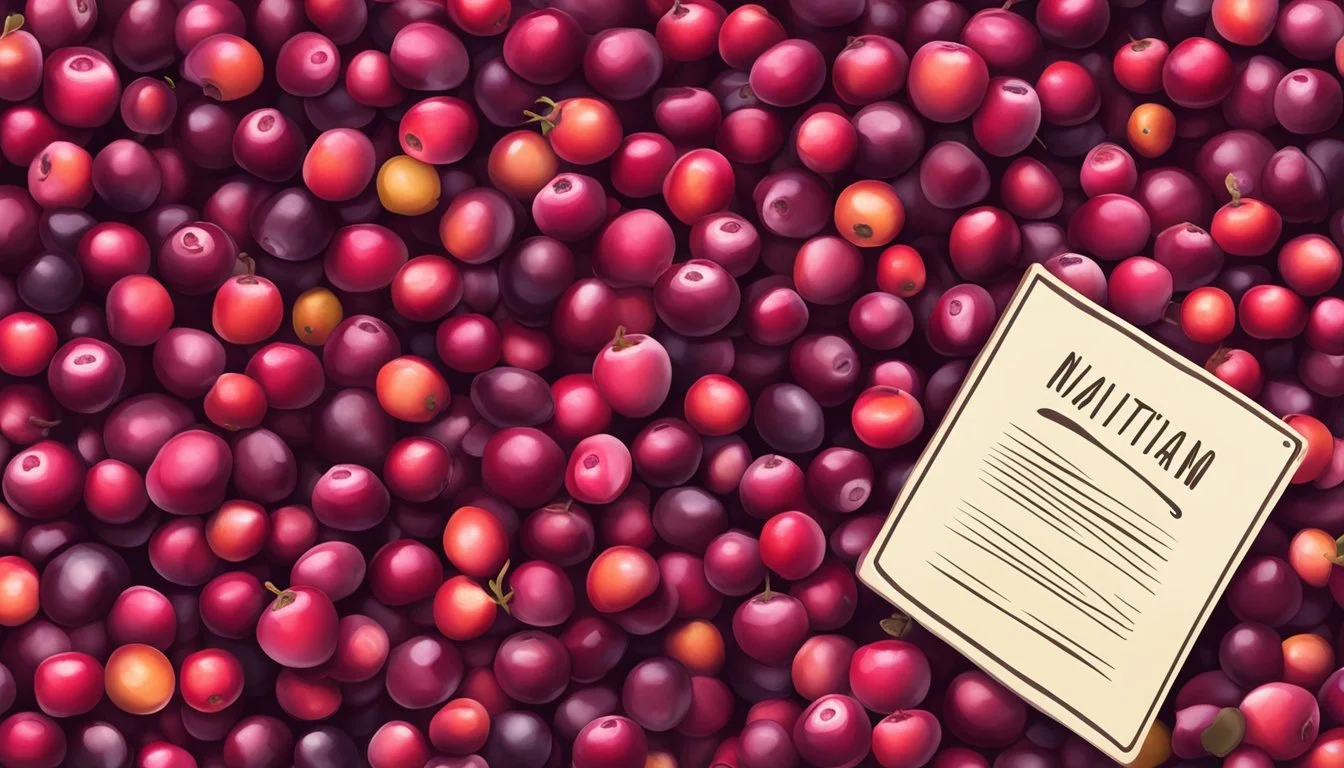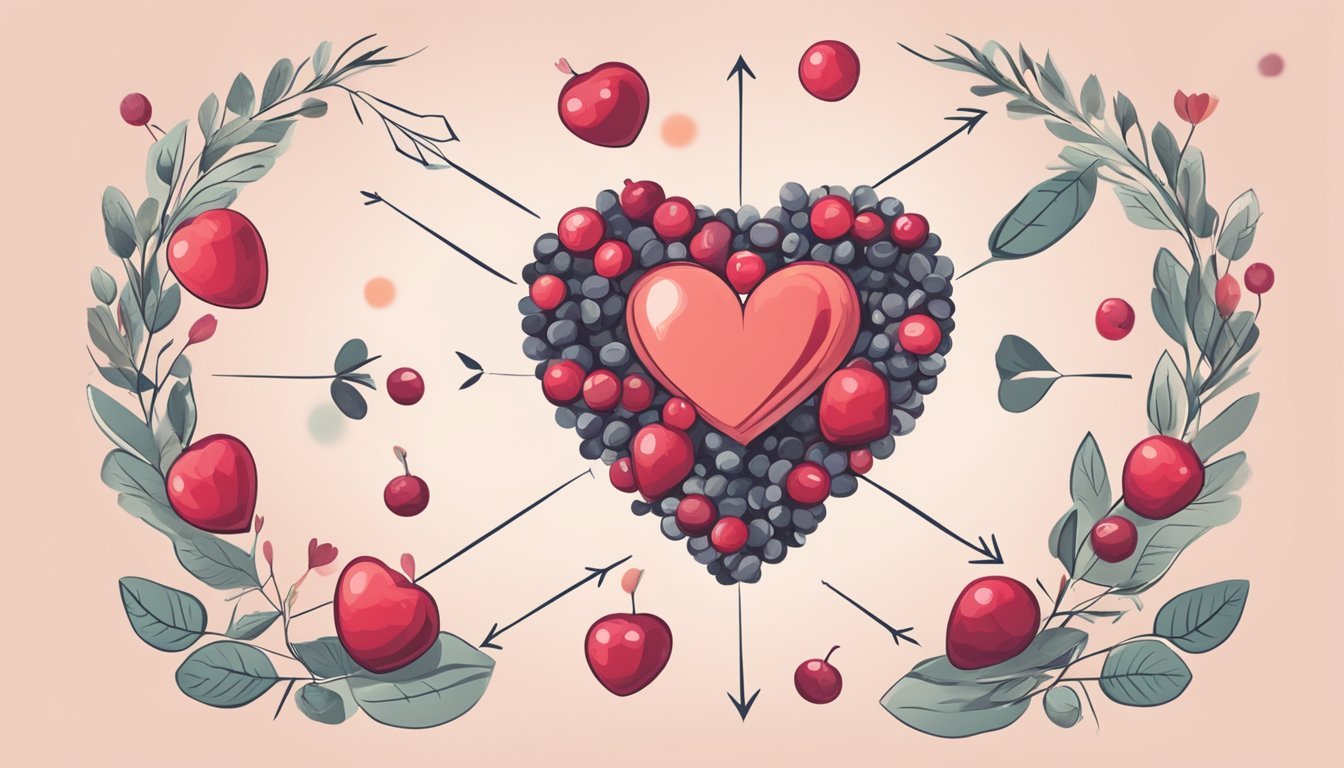What Are the Health Benefits of Cranberries?
Unveiling Nutritious Secrets
Cranberries, small, red, tart fruits, have been well regarded for their various health benefits. These berries are not only a staple in holiday feasts but also a powerful food in terms of nutritional value. Rich in vitamins, minerals, and antioxidants, cranberries are linked to a range of health improvements.
Research indicates that cranberries can play a role in heart health by positively influencing blood pressure and cholesterol levels. The antioxidants found in cranberries, particularly polyphenols, may reduce oxidative stress, which is a contributing factor to many chronic diseases. Regular consumption of cranberries, or their juice, has been associated with an increase in HDL (good) cholesterol and a potential decrease in LDL (bad) cholesterol.
Apart from their cardiovascular benefits, cranberries have been traditionally used to prevent urinary tract infections. The presence of certain compounds in cranberries is believed to prevent bacteria from adhering to the urinary tract walls, thus reducing the incidence of infections. These benefits, combined with their nutrient profile, underscore the multifaceted reasons why incorporating cranberries into one's diet can be advantageous for health.
Nutritional Profile of Cranberries
Cranberries are a rich source of various nutrients and bioactive compounds, making them a valuable addition to a balanced diet. They have a high water content, with roughly 90% of their weight coming from water.
A typical serving size of 1 cup (100 grams) of raw, unsweetened cranberries provides:
Calories: 46
Protein: 0.4 grams
Carbohydrates: 12.2 grams
Total Fat: 0.1 grams
Fiber: 4.6 grams
Sugars: 4 grams
In terms of vitamins, cranberries are an excellent source of Vitamin C, a potent antioxidant, offering up to 22% of the Reference Daily Intake (RDI) per 100 grams. They also contain Vitamin E and Vitamin K, which are essential for various bodily functions, including clotting and protection against oxidative damage.
Minerals found in cranberries include calcium, potassium, and manganese, with potassium supporting heart health by helping to maintain normal blood pressure.
Cranberries are particularly known for their content of antioxidants, such as proanthocyanidins, anthocyanins, and phenols. These compounds may reduce oxidative stress and inflammation, potentially leading to health benefits related to the prevention of certain diseases.
Calories: 46 per 100 grams
Protein: 0.4 g per 100 grams
Carbohydrates: 12.2 g per 100 grams
Fat: 0.1 g per 100 grams
Fiber: 4.6 g per 100 grams
Sugars: 4 g per 100 grams
Vitamin C: 13.3 mg per 100 grams (22% of RDI)
Vitamin E: Not specified
Vitamin K: Not specified
Calcium: Not specified
Potassium: Not specified
Manganese: Not specified
Cranberries’ unique blend of vitamins, minerals, and antioxidants contribute to their health-promoting properties, making them a nutritionally dense fruit worth incorporating into one’s diet.
Cranberries and Urinary Tract Health
Cranberries have gained recognition for their role in urinary tract health, particularly in preventing urinary tract infections (UTIs). Key compounds in cranberries may prevent bacteria from adhering to the urinary tract, thereby reducing the likelihood of infection.
Preventing UTIs
Cranberries, especially when consumed as cranberry juice, are commonly associated with the prevention of urinary tract infections. This is attributed to the presence of A-type proanthocyanidins (PACs) in cranberries, which are believed to inhibit the adherence of Escherichia coli (E. coli) bacteria to the lining of the bladder and urinary tract. Regular consumption of cranberry juice may reduce the frequency of recurrent UTIs, particularly in women with a history of these infections.
First Line of Defense: PACs in cranberries can act as a barrier against UTIs.
Target Bacteria: The primary bacteria prevented by cranberries is E. coli, the most common cause of UTIs.
Anti-Adhesion Properties
The anti-adhesion properties of cranberries are essential in the battle against UTIs. The A-type proanthocyanidins in cranberries prevent E. coli bacteria from attaching to the cells that line the urinary tract. This anti-adhesive effect reduces the ability of bacteria to cause an infection, making it a non-antibiotic option for the prevention of UTIs.
Mechanism: Cranberries contain compounds that interfere with bacteria's ability to bind to the urinary tract walls.
Potential Alternative: For individuals looking to avoid overuse of antibiotics, cranberry juice serves as a potential preventive measure against UTIs.
Cardiovascular and Anti-inflammatory Benefits
Cranberries, rich in antioxidants and fiber, play a significant role in supporting cardiovascular health and exerting anti-inflammatory effects. These properties contribute to reducing the risk of heart disease and can positively influence both cholesterol levels and blood pressure.
Reducing Heart Disease Risk
Cranberries possess notable anti-inflammatory properties that are crucial in lowering the risk of heart disease. Chronic inflammation is a known risk factor for developing cardiovascular conditions. The bioactive compounds found in cranberries, such as phenolic acids and flavonoids, help reduce inflammation, thereby protecting heart health.
Influence on Cholesterol and Blood Pressure
The antioxidants in cranberries contribute to improved cholesterol levels by increasing the uptake of "good" HDL cholesterol. Furthermore, the fiber content in cranberries is beneficial for heart health, as it helps to lower "bad" LDL cholesterol. Moreover, cranberries have been associated with a positive effect on blood pressure regulation, demonstrating their potential in preventing hypertension, a key contributor to cardiovascular events.
Cancer Prevention and Management
Cranberries have garnered attention in the field of oncology due to their rich content of compounds with potential anti-cancer properties. Investigations into these properties have centered on cranberries' antioxidant components and their role in cancer prevention and research progress.
Role of Antioxidants
Cranberries are laden with phenolic compounds, including polyphenols and a unique kind of a-type proanthocyanidins. These substances are capable of counteracting oxidative stress by neutralizing free radicals, which can otherwise lead to cellular damage and the development of cancer. The antioxidants in cranberries form a critical part of a diet aimed at reducing the risk of cancer, as they help to mitigate inflammation and curb infections that could potentially escalate into cancerous conditions. Their effectiveness in this prevention is a subject of ongoing clinical study.
Cranberries in Cancer Research
Scientific research has identified promising aspects of cranberries in the context of cancer. In clinical studies, cranberries and their extracts have shown benefits such as decreasing lipid peroxidation and oxidative stress, which are processes related to the progression of cancer. Furthermore, emerging research suggests that cranberries may influence the proliferation rates of malignant cells, potentially inhibiting cancer development. Although studies are at an early stage, consumption of cranberries has been associated with a lower incidence of certain cancers, reinforcing the importance of diet in cancer management and prevention strategies.
Frequently Asked Questions
Cranberries are recognized for their rich nutrient profile and potential health benefits, ranging from urinary tract health to cardiovascular benefits. Here we explore some of the common questions about the health benefits of cranberries.
How can consuming cranberry juice improve health?
Consuming cranberry juice provides antioxidants and can help prevent urinary tract infections by inhibiting bacteria from adhering to the urinary tract walls.
What are the benefits of incorporating dried cranberries into my diet?
Dried cranberries contain the same antioxidants as fresh cranberries. They are a convenient snacking option and can add flavor and nutrition to a variety of dishes.
In what ways do cranberries contribute to skin health?
Cranberries support skin health through their high vitamin C content, which aids collagen production, and their antioxidants may protect against environmental damage.
How does the intake of cranberries affect male and female health differently?
Cranberries aid in urinary tract health for both genders, but women may benefit more due to a higher prevalence of urinary tract infections. Emerging research suggests cranberries might also support prostate health in men.
What are the daily recommended amounts of cranberries for optimal health benefits?
There is no specific daily recommendation for cranberries, but incorporating a serving of 1 cup of fresh cranberries or 1/4 cup of dried cranberries into daily meals can contribute to a balanced diet.
Can cranberries be considered a superfood, and why?
Cranberries are often termed a superfood due to their high nutrient and antioxidant content, which may contribute to improved heart health, prevent infections, and offer other health benefits.




